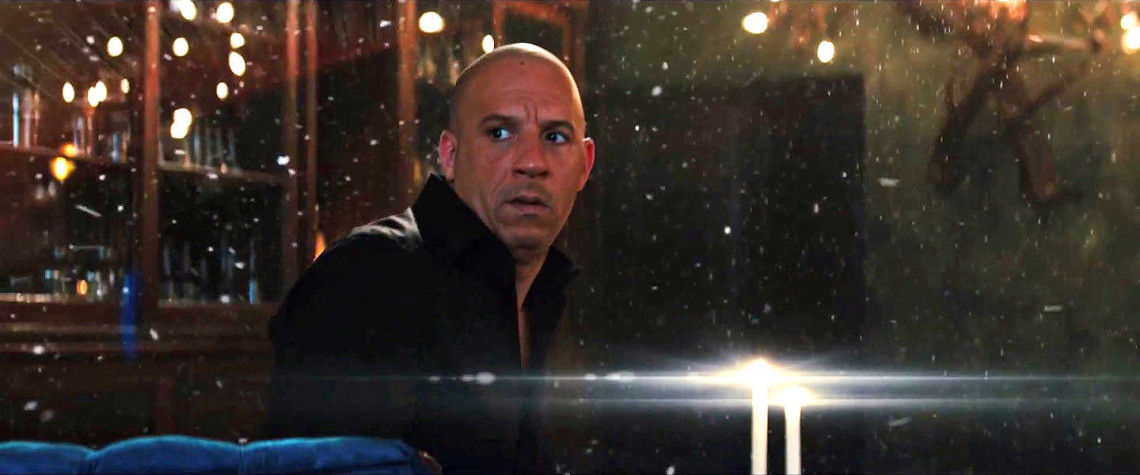To look at the career of Vin Diesel surrounding the various films in which he achieves maximum fastness and furious-ity is to look at the career of a man who badly wants to be seen as his generation’s Arnold Schwarzenegger. There is the gritty crime drama (A Man Apart), the wacky family comedy (The Pacifier), and the action-heavy attempt at a new franchise (xXx). The period when Diesel stepped away from the burgeoning Fast and Furious series—which flailed in the 2000s until the 2009 entry brought back a slew of actors from all three predecessors, including Diesel and the late Paul Walker—is less a successful grab at movie stardom than akin to watching David Caruso try and fail to prove his stardom after one very good season of “NYPD Blue.” Since Diesel rejoined the crew in Fast & Furious, he’s appeared in three non-car-related films: the final Riddick picture, Guardians of the Galaxy, and now the thoroughly dull The Last Witch Hunter.
The early section of this fantasy/horror hybrid portends something genuinely horrendous; the Middle Ages-set prologue, which establishes how Diesel’s Kaulder is cursed with immortality by a Witch Queen who, it’s suggested, caused the Black Plague, is dire in every possible way. Breck Eisner, who proved with his remake of The Crazies in 2010 that he’s not wholly untalented behind the camera, seems to be totally lost in crafting coherent visuals here. The fight between Kaulder and the Witch Queen, taking place in a poorly lit underground location, is legitimately incomprehensible in its staging and fight choreography, suggesting that the film’s special effects are so hideous that only darkness or mood lighting can obscure their weak quality. But as soon as the mysteriously widowed Kaulder is given immortality, the story cuts to the present day (all the better so we don’t have to see Diesel’s laughable hairpiece). Kaulder now lives in New York, and is handled/aided by the 36th member of a line of priests (Michael Caine, because the house that Jaws: The Revenge built must have needed a guest wing) in hunting and incarcerating witches in the surrounding area. Just as his priest is ready to retire, however, he’s found dead by his successor (Elijah Wood). So Kaulder takes it upon himself to hunt down his old friend’s murderer, with a magical young woman (Rose Leslie) by his side.
There are few surprises within The Last Witch Hunter—would you believe that the Witch Queen from the prologue may not have died? But the lack of surprise in the script by Cory Goodman, Matt Sazama, and Burk Sharpless wouldn’t be much of a problem if the overall product didn’t feel so slapdash and haphazard. Telltale signs abound of a production beset by rewrites or reshoots; Caine’s character, after the prologue, provides some voiceover that doesn’t recur, and seems to exist primarily to clue us into what Kaulder does for kicks in the 21st century, as an example. And The Last Witch Hunter may well win this year’s award for Most Obvious ADR; a good chunk of the dialogue is visibly dubbed over, in such a way that suggests utter sloppiness more than anything else. It’s not the first such instance in modern cinema, but there are as many obvious ADR moments here as there are action sequences, if not more.
Even those miscues might not rankle quite so much if Vin Diesel himself felt remotely appropriate for the role of Kaulder. Though Diesel is built for dark brooding, he’s unable to thread the needle between being a supernatural badass and a sly detective. The script sometimes calls for Kaulder to be knowing and sly and witty, none of which are qualities that appear to come naturally to Diesel; every line reading is slightly off, slightly awkward, as if the words aren’t able to come to him naturally. The script itself isn’t exactly a gem, but Caine, Leslie, and Wood don’t have the same odd difficulty in making their characters’ dialogue seem even remotely appropriate.
The Last Witch Hunter is beset upon by numerous problems; almost as bad as anything else listed above, the movie is bogged down by exposition. Characters converse by telling each other information that they already know, simply so we are clued into how this world works. (It’s genuinely surprising that this isn’t based on some cheesy airport-read genre novel, as there’s such a strained attempt at world-building how the human/witch divide operates.) As so many movies still do, this film commits the cardinal sin of telling, not showing, so, so much. The Last Witch Hunter concludes (after a decision that suggests the entire story we’ve just watched had no purpose) with a hint of a franchise, but no matter how hard he’s tried, Vin Diesel continues to struggle in movies where he’s required to do more than drive a car as fast as he can.




















